Raúl González, INAOE student, chosen to attend the Vatican Observatory Summer School
Santa María Tonantzintla, Puebla, May 23, 2023. Raúl González, a doctoral student at the National Institute of Astrophysics, Optics and Electronics (INAOE), was selected to participate in the Vatican Observatory Summer School (VOSS, for its acronym in Spanish). in English), which will take place from June 4 to 30 at Castel Gandolfo, Rome, Italy.
This is the eighteenth VOSS, welcoming undergraduate and graduate students from around the world. In each edition the School is dedicated to a specific theme. In 2023 the theme is focused on data science as a tool to study the universe.
One of the characteristics that make the Vatican School unique is the interaction between students and researchers from the Vatican Observatory (Specola Vaticana). Specola members are Jesuit priests from various continents who study the universe using modern scientific methods, promoting a constructive dialogue between the areas of science and faith. The Vatican Observatory is one of the oldest and most prestigious in the world, having been active since 1582. It was established by the Holy See to develop astronomical research and dissemination in order to advance the scientific understanding of the universe.
Over the years, many INAOE students have attended the VOSS. Among them are doctors Miguel Chávez Dagostino, Fernando Fabián Rosales Ortega, Omar López Cruz, Raúl Mújica García, Giannina Dalle Mese, Luisa Cardona, Eric Faustino Jiménez Andrade and Daniel Olmedo, among others. Currently, some of them are researchers at INAOE and other institutions.
For Raúl González, who will attend this year, the VOSS is a great opportunity: “I am excited, I have always wanted to participate in something like this. I'm going to a country I've never been to, to visit places I've never been and to meet new people, and it may be important for a future project." Raúl González explains that this edition of the School is dedicated to machine learning, big data, neural networks and artificial intelligence as astronomical tools focused on the treatment of large astronomical mappings with large data from images and spectroscopy. He adds that the VOSS will be useful to him since in his doctoral thesis he uses supercomputers to analyze millions of spectroscopy data: "It is something that at least I am seeing, that in many current articles these tools are beginning to be implemented in astronomy" .
The INAOE doctoral student explains that his thesis deals with a phantasmagorical component that exists in spiral galaxies: the diffuse gas that is omnipresent in this type of object. “It is still a mystery what produces it and why it is there, despite being a fairly important part of galaxies. For decades, attempts have been made to shed light on this, but the volume of data and its quality have always been a problem. In my thesis I am having access to enormous amounts of high-quality data from the VLT telescope of the European Southern Observatory to carry out this analysis, which is precisely the central theme of VOSS this year, the analysis of large amounts of data.”
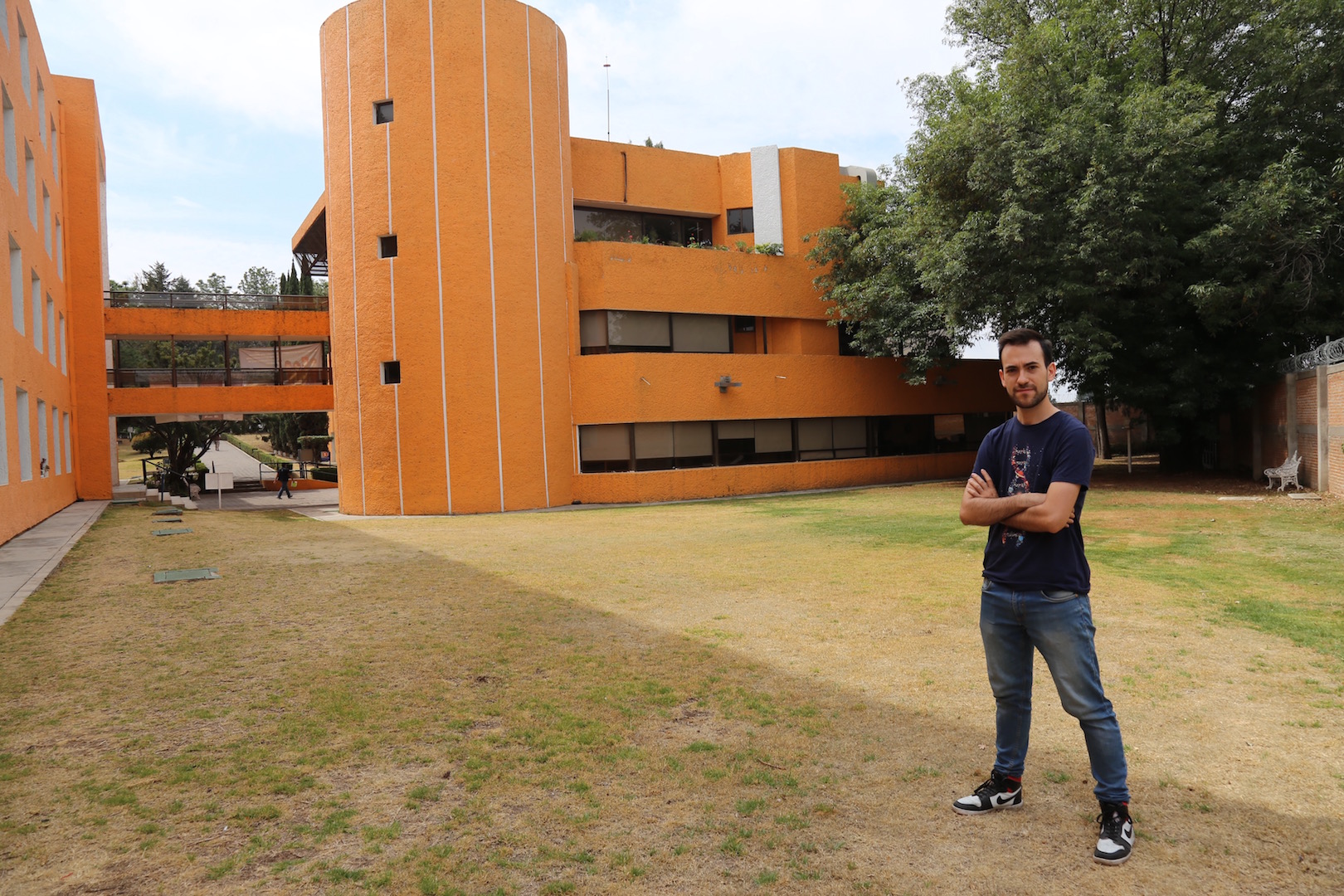
The VOSS, important for the professional development of students
The Vatican Observatory Summer School has turned out to be of great importance for the professional development of those who attend it. For example, Luisa Cardona, a doctoral student at INAOE, participated in it in 2018, when the topic was "Stellar variability in the era of large surveys". Luisa Cardona comments that attending the VOSS has been important to her because “at the School I was able to share the undergraduate work she had done on variable stars, type RR Lyrae, in globular clusters. During the School we developed a short project, where what I had learned in my first year in the master's degree at INAOE was very useful. In addition, I learned about the cultures of the other students from many parts of the world and made friends with whom I still keep in touch. After VOSS 2018 I changed my research topic from variable stars to dusty galaxies, but the experience at the School and what I learned from it definitely marked the beginnings of my career.”
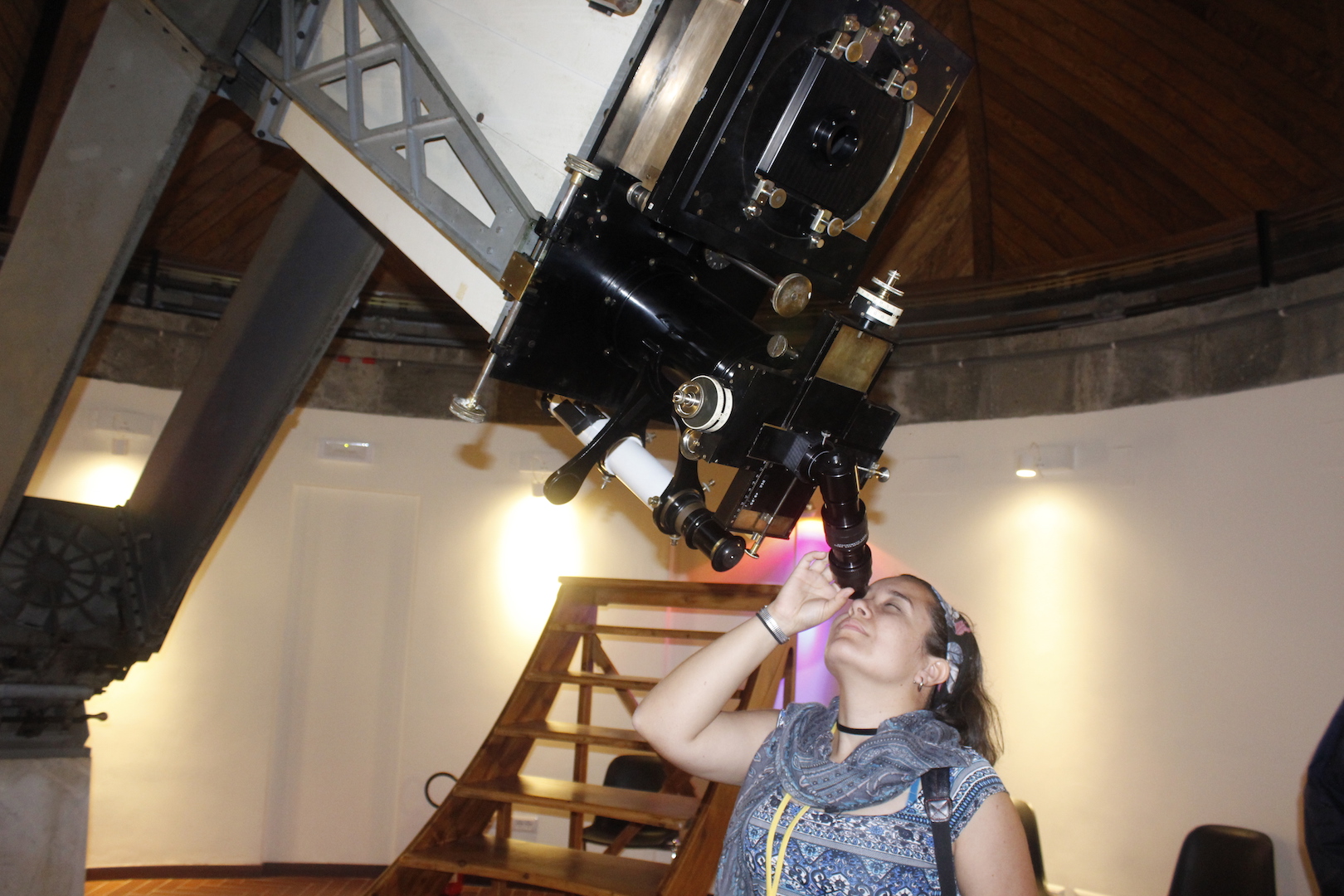
Dr. Miguel Chávez Dagostino, INAOE Senior Researcher since 1996, participated in the third Vatican Summer School in 1990. In that School, the topics that were developed were spectral classification and the structure of galaxies. “It was my first exposure to an international environment and I made excellent friends, among the faculty, students and staff of the observatory, with whom I had and still have communication, particularly those who followed their paths in Astrophysics. I developed a very special friendship with Father George Coyne, who served as director of the Vatican Observatory for 28 years until 2006. George was one of the main promoters of the VOSS and provided enormous academic and financial support to many of the students during our participation in the VOSS and even in later stages. Although I was an active student at INAOE at the time, thanks to the financial support of the Vatican Observatory and George's academic recommendation, I was able to access scholarships from the International Atomic Energy Agency and the Italian government to continue with postgraduate studies in Italy. ”, says the researcher. The commitment of the Vatican Observatory and Father Coyne in the formation of new cadres of researchers worldwide is reflected in the continuity of the organization of the VOSS since 1986 and, in fact, by virtue of this commendable work, the INAOE awarded him an honorary doctorate in 2016.
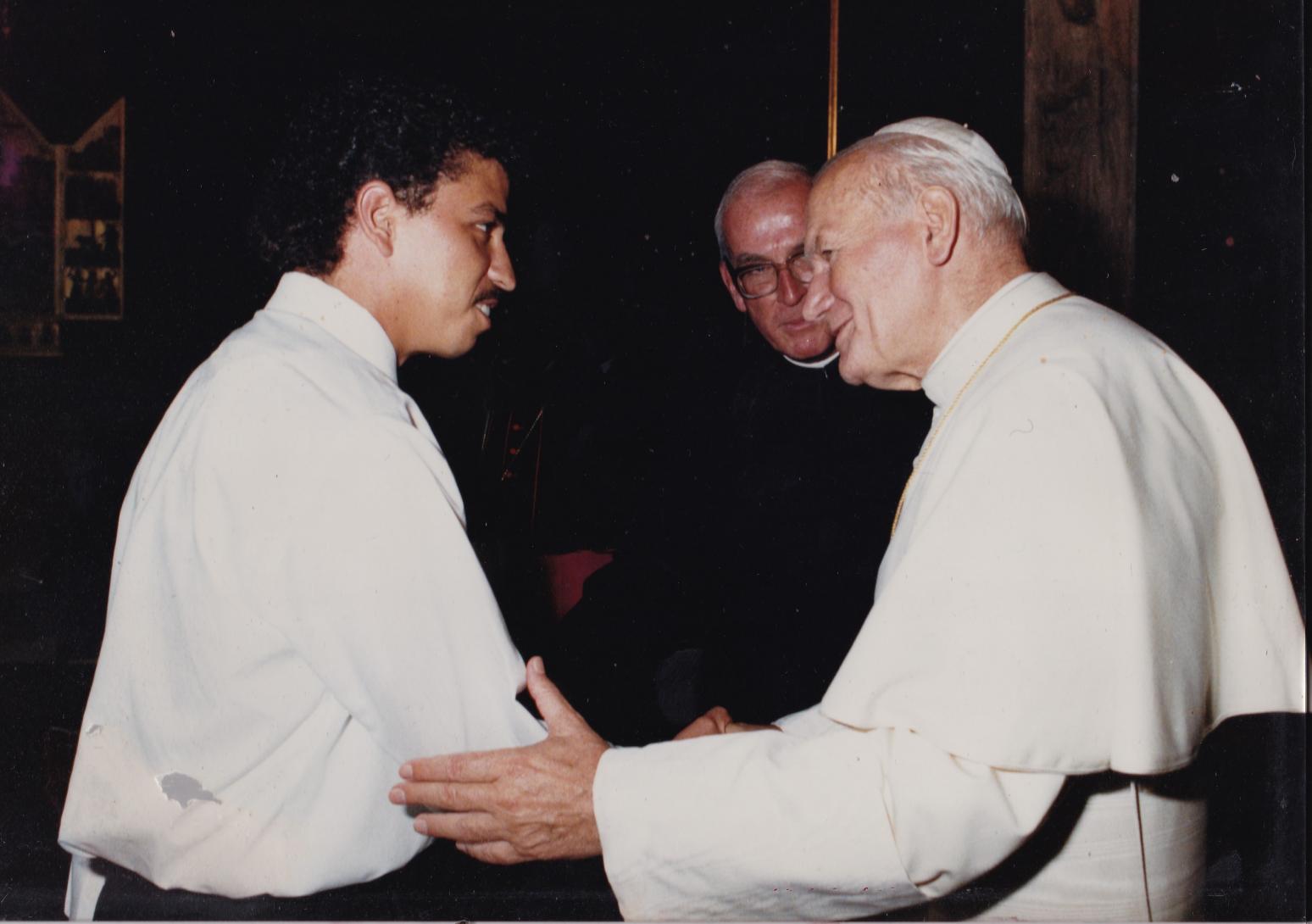
Dr. Fernando Fabián Rosales Ortega, current researcher at the INAOE Astrophysics Coordination, participated in the 2003 VOSS as a graduate student at the Meritorious Autonomous University of Puebla. “The Vatican School was essential for my professional development, the subject of the VOSS was about observations and the theory of evolution of galaxies, a topic in which I later specialized, my PhD advisor being one of the School's professors” .
For her part, Dr. Giannina Dalle Messe, a graduate of INAOE and who currently works at the Autonomous University of Sinaloa, tells that she participated in the VOSS in 2012, when it was dedicated to star clusters: “We saw a lot of theory, how to make observations and we had about five specialist professors in the area from different universities. At the School I realized how astronomy is done elsewhere and how other people do it, which opened up my panorama”.
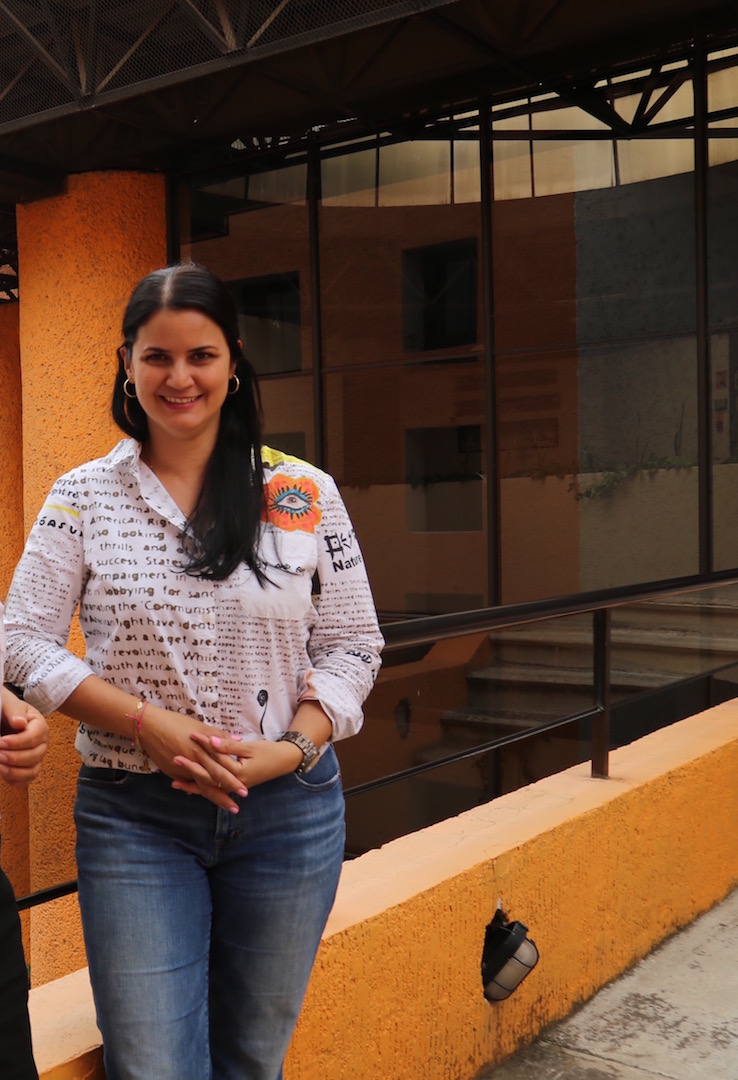
Finally, Dr. Eric Faustino Jiménez Andrade, a graduate of INAOE and currently a researcher at the Institute of Radio Astronomy and Astrophysics of UNAM, attended the School in 2014, when the theme was "Galaxies: near and far, young and old". About his experience at VOSS 2014, he recalls that it was the first international academic event he attended: “It allowed me to interact with graduate students from all over the world and with leading researchers in the area of extragalactic astronomy. In particular, I had the opportunity to mentor Dr. Chris Carilli on a short research project. He was the one who introduced me to the area of high redshift galaxies and motivated me to pursue postgraduate studies abroad. Since then, I have maintained constant communication with Dr. Carilli with whom I have collaborated on various projects. We are currently coordinating actions aimed at strengthening the "Next Generation Very Large Array" project, which seeks to build the largest array of radio telescopes in the northern hemisphere (including Mexican territory). Without a doubt, the VOSS significantly boosted my scientific career by facilitating the rapprochement with prominent astrophysicists and astrophysicists from around the world. Today, after almost ten years, I remember the lessons of my mentors at school and I try to follow in their footsteps now as a researcher at the Institute of Radio Astronomy and Astrophysics of the UNAM”.
We hope that Raúl González's participation in VOSS 2023 will be just as rewarding and profitable for his professional development, and for the benefit of the INAOE astronomical community.
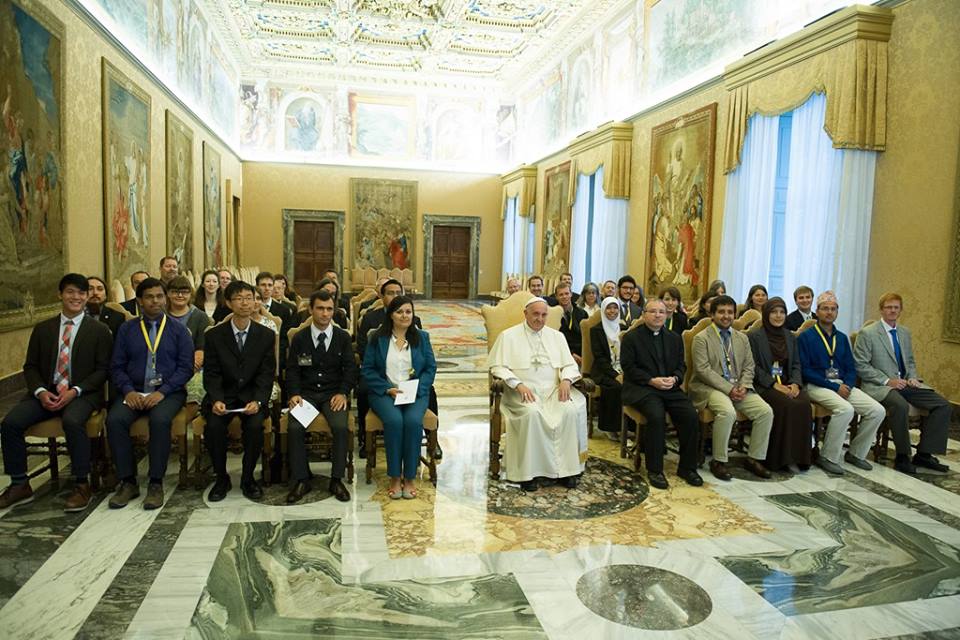
Luis Enrique Erro # 1, Tonantzintla, Puebla, México, Código Postal 72840, Tel: (222) 266.31.00, difusion@inaoep.mx
This work is licensed under a Creative Commons Attribution-NonCommercial-NoDerivs 2.5 Mexico License.


